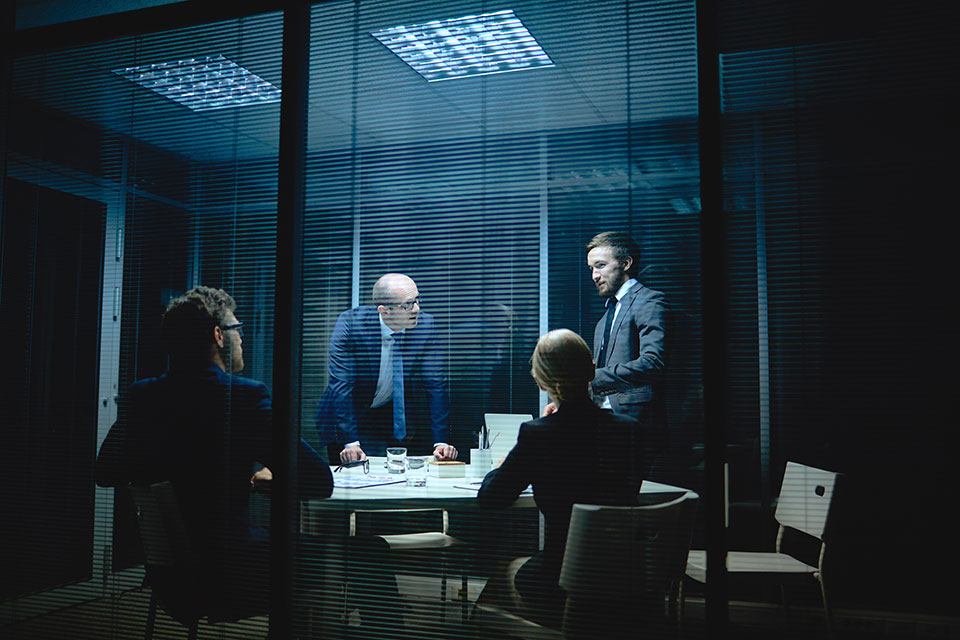When it comes to strategic decision-making, how much do CEOs really matter?

The answer to such a straight question isn’t as obvious as you might think. In fact, this issue has been hotly debated in management and finance circles for decades now. While plenty of anecdotal evidence suggests that CEOs can make or break a firm – remember how every time Steve Jobs sneezed, Apple shares took a dive – many business scholars see CEOs being merely the most visible cogs in complex machines. The so-called “CEO effect” is also notoriously difficult to measure and isolate from many dynamic forces that shape firm performance.
In a joint research project I conducted with Miha Sajko and Christophe Boone (both from the University of Antwerp), we adopted a different angle to tackle this question. Instead of a sweeping study of all the CEOs’ activities, we asked ourselves how much sway they have over their firms’ corporate social responsibility (CSR) initiatives and actions? Our in-depth comparative analyses of the CEO effects can be broadened to reach more general conclusions on the CEO effect, alongside contextual influences like industry, firms and macropredictors such as changes in widely-held norms about responsible business conduct.
CSR policy is a direct result of a firm’s deliberate actions over which CEOs have significant influence. For example, when Steve Jobs returned as Apple’s CEO in 1997, he cut most of the company’s CSR activities. Arguably, Jobs was known for his strong focus on product design and on creating shareholder value. But he did not hide his disregard for philanthropic activities. It was not until Tim Cook became CEO at Apple in August 2011 that CSR became a central component of its strategy again. The switch back reflects the fact that CSR has become a key performance measure on which firms are judged on. Thus, firms annually allocate a significant level of their financial resources to CSR.
To isolate the CEO effect, we applied the ‘CEO in context’ technique. This recently developed novel procedure allows us to consider the contextual factors that govern executives’ lives more accurately. In 1997, when Jobs reclaimed the helm of Apple’s destiny, the firm was experiencing severe financial difficulties. When the baton was passed on to Cook, Apple was cash-rich and one of the world’s most valuable firms. In the meantime, generally-held norms about what is and what is not generally accepted business conduct have changed. Compared to earlier methods designed to isolate the CEO effect, the CEO in context techniques allows us to explicitly consider the contextual influences.
What did our research reveal?
In a sample of about 1,200 CEOs at 819 firms across 49 industries, we calculated a CEO effect of 30 percent of the total variance in CSR. In other words, CEOs have significant influence over their firms’ CSR initiatives and activities. The CEO effect is also remarkably stable across the different CSR datasets and CSR actions directed at various stakeholders such as employees, the environment, community, or increasing diversity. This contrasts to temporal, firm, or industry effects, which differ significantly over stakeholder categories. Thus, CEOs’ sway over their firms’ actions is considerable and stable, while the impact of other factors varies greatly. On top of this, we find that CEOs differ more for socially responsible activities than for actions usually deemed irresponsible which are more strongly influenced by industry characteristics.
What are the implications?
Our results show that CEOs are more than just the most visible cogs in complex machines. This is not to say that generally held norms, as well as the industry and firm contexts in which they operate do not matter. But CEOs determine the fate of a firm’s CSR, and even beyond it. Given the high priority that today’s boards of directors place on CSR, our findings underscore the importance of knowing a CEO’s style, experience, and personality. Boards are increasingly tying CEO bonuses to improved diversity or a reduction of the company’s carbon footprint, so it is essential to understand what a CEO’s stance on CSR truly is.
Have you read?
Best Hospitality And Hotel Management Schools In The World For 2021.
Best Fashion Schools In The World For 2021.
Best Business Schools In The World For 2021.
Best Medical Schools In The World For 2021.
Follow CEOWORLD magazine on Facebook, Twitter, Instagram, and LinkedIn.
Bring the best of the CEOWORLD magazine's global journalism to audiences in the United States and around the world. - Add CEOWORLD magazine to your Google News feed.
Follow CEOWORLD magazine headlines on: Google News, LinkedIn, Twitter, and Facebook.
Copyright 2025 The CEOWORLD magazine. All rights reserved. This material (and any extract from it) must not be copied, redistributed or placed on any website, without CEOWORLD magazine' prior written consent. For media queries, please contact: info@ceoworld.biz








